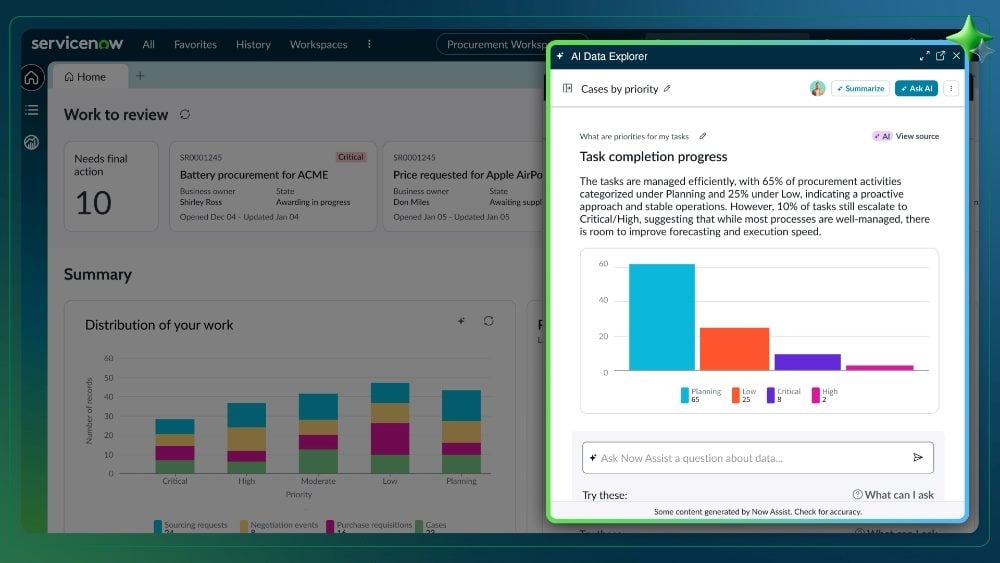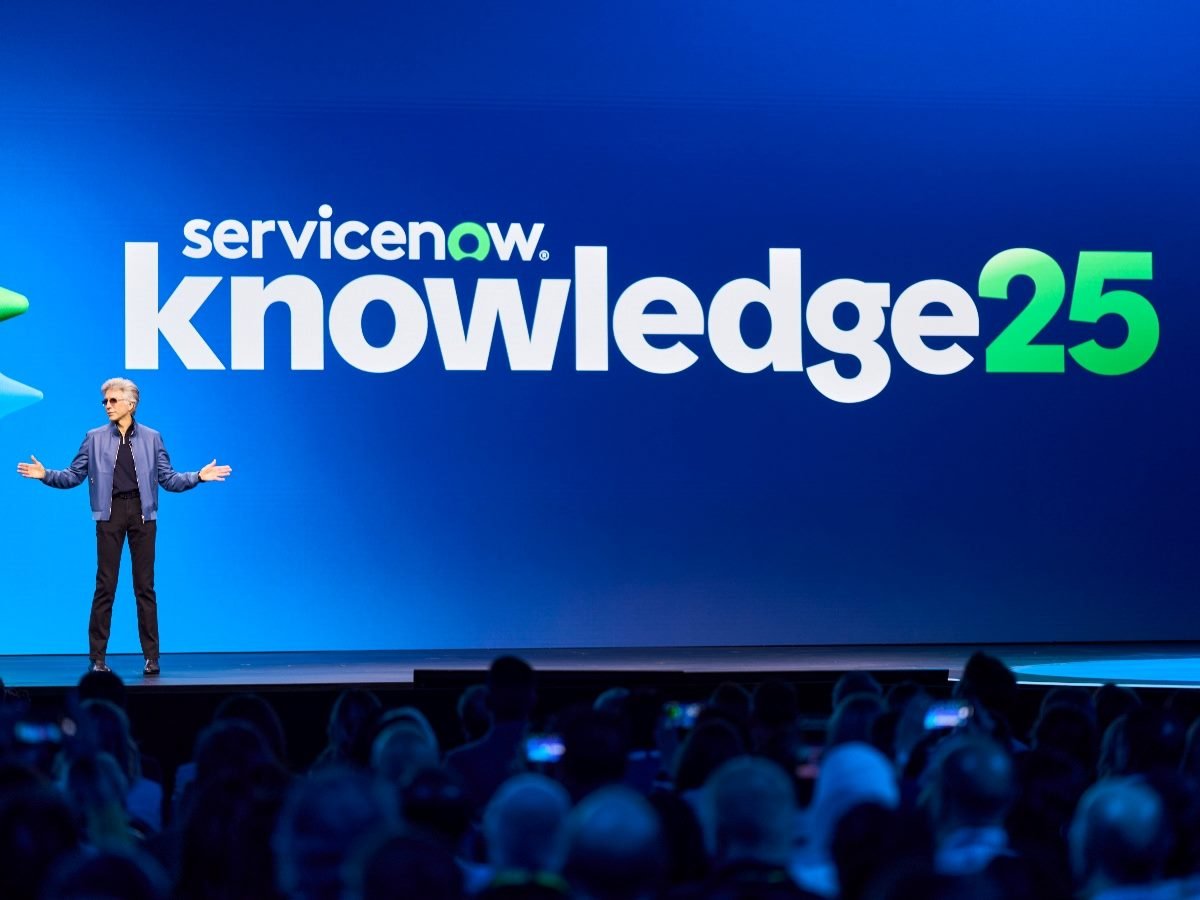The Gist
-
Unified AI interface. ServiceNow introduces AI Experience to centralize enterprise workflows and AI tools.
-
Enhanced AI capabilities. New features include multimodal UI, intelligent agents and integrated governance.
-
Enterprise productivity impact. Business leaders can expect simpler AI adoption and improved workflow efficiency across departments.
ServiceNow announced AI Experience on Sept. 30, introducing what the company describes as a unified, conversational interface for enterprise AI. The new offering aims to address the fragmentation of workplace tools by providing a single entry point for employees to access information, delegate tasks and collaborate with AI.
According to company officials, AI Experience features a context-aware interface that unites people and AI in a multimodal environment with built-in governance and security. The solution extends across workflows including Customer Relationship Management (CRM), which ServiceNow asserts will help transform sales and service operations.
Table of Contents
- Impacted Audiences for AI Experience
- AI Platforms Compete on Data, Not Just Algorithms
- AI Experience's Impact on Productivity
- AI Experience Capabilities
- ServiceNow Background
Impacted Audiences for AI Experience
-
Enterprise IT leaders managing multiple AI implementations
-
Operations executives seeking workflow automation
-
Customer service and sales teams using CRM systems
AI Platforms Compete on Data, Not Just Algorithms
Enterprise technology has shifted dramatically toward data-driven decision making, with unified platforms becoming essential for effective governance and analysis.
ServiceNow, a workflow automation company founded in 2004, has evolved its platform to address fragmented enterprise experiences. The company's latest AI Experience offering comes as industry analysts note that AI has evolved from optional enhancement to fundamental requirement in customer experience platforms. Organizations increasingly recognize that data quality determines AI success, with integration challenges remaining significant hurdles for many enterprises.
The market has been moving toward platforms that offer flexibility in AI implementation. According to ServiceNow, its new offering aims to unify people, data and workflows via a single interface with built-in governance. This approach aligns with broader industry trends where competitive advantage comes not from algorithms alone but from quality, richness and integration of enterprise data assets.
The push for AI-powered interfaces comes amid growing accuracy in enterprise search tools and continuous efforts to integrate AI into customer-facing systems that can automate routine interactions while maintaining personalized service.
Related Article: ServiceNow Unveils the New ServiceNow AI Platform
AI Experience's Impact on Productivity
AI Experience from ServiceNow is addressing one of the biggest challenges enterprises face today: fragmented, clunky user experiences that slow down work.
- Amy Lokey, Executive Vice President and Chief Experience Officer
ServiceNow
AI Experience Capabilities
According to ServiceNow, the new interface places AI at the center of user experience with several new features:
| Capability | Description |
|---|---|
| AI Voice Agents | Hands-free support for retrieving information and troubleshooting issues |
| AI Web Agents | Complete tasks across third-party apps without requiring APIs |
| AI Data Explorer | Connects insights across data sources via Workflow Data Fabric |
| AI Lens | Converts visual elements into actionable items |
| AI Control Tower | Central hub for governing and monitoring AI assets |
| Model Provider Flexibility | Integration with ServiceNow and third-party LLMs |

ServiceNow Background
Founded in 2004 in Santa Clara, Calif., this company primarily targets enterprise IT leaders and operations executives with workflow automation solutions.
Workflow Automation
The company provides a cloud-based platform designed to automate digital workflows across IT service management (ITSM), IT operations management (ITOM), human resources and customer service. Its products aim to streamline processes, reduce manual work and improve service delivery. The platform integrates with a range of enterprise systems and supports artificial intelligence (AI) features for predictive analytics and automation.
Market Position
Positioned as a significant player in enterprise workflow automation, the company serves large organizations across industries such as financial services, healthcare and government. Its typical customers include Fortune 500 firms and public sector agencies seeking to modernize legacy processes. Industry analysts have cited its broad platform capabilities and ecosystem partnerships as notable differentiators.
Have a tip to share with our editorial team? Drop us a line:
